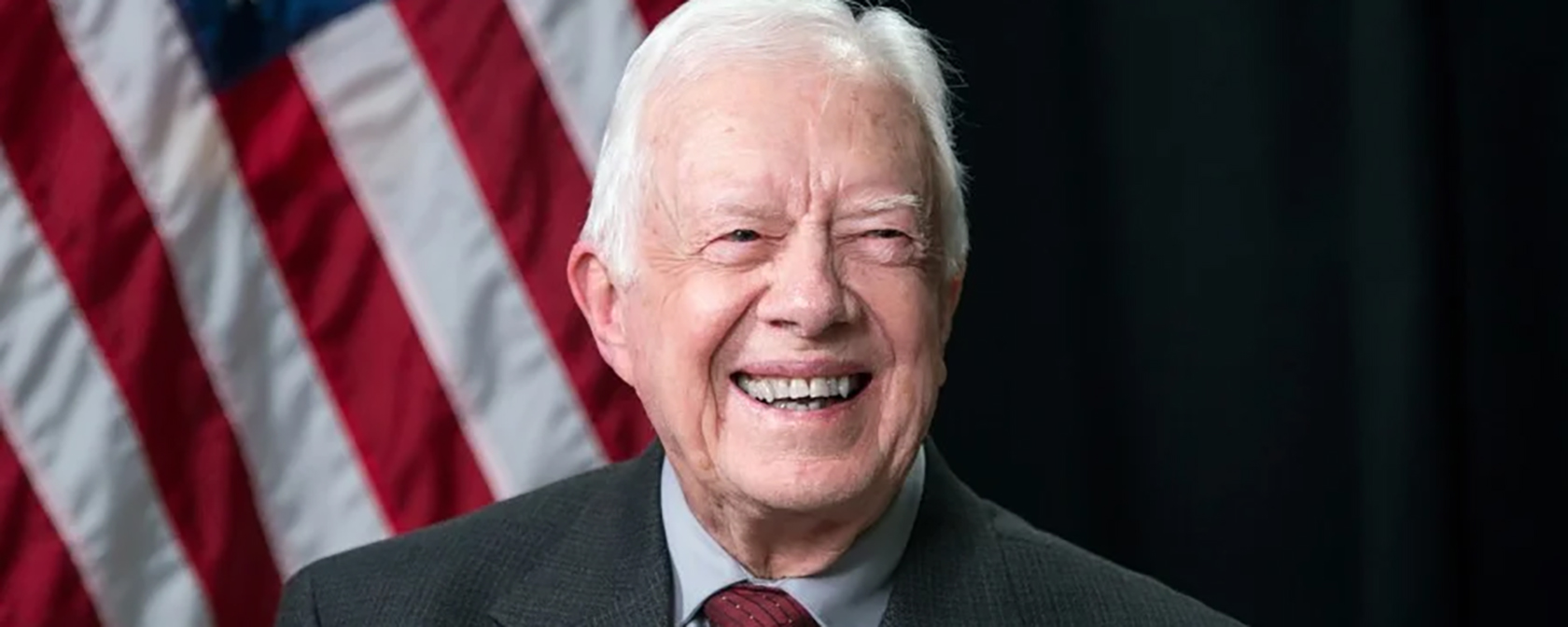By Sara Amundson and Kitty Block
Inevitably, the passing of an American president offers an opportunity to think not only about an individual’s achievements in office, but to reflect on what those achievements say about our nation, and who we are, and what we can be. In this regard, Jimmy Carter leaves one of the richest legacies of anyone who has ever occupied the White House.
Through the lens of concern for animals, and from the benefit of half a century since he left office, we can see and admire the degree to which Carter’s vision encompassed a sense of interdependence between environmental and animal protection, human health and well-being, and global sustainability and social conscience, all infused by a deep faith and sense of stewardship and a characteristic decency, warmth and kindness.
President Carter was a lifelong birder who went birding on all seven continents, but it would go too far to say that animal protection concerns were large or even explicit on his presidential agenda. Still, it is abundantly true that he took decisive steps in conservation, steps that have benefited millions of animals across North America over the last half century and will continue to do so for many centuries more. In this regard, there’s a lot for us to protect and to build upon.
During Carter’s single term as president, our national park system doubled in size, with 11 new parks created. The Alaska National Interests Land Conservation Act, which he signed, designated 56 million acres of wilderness, including lands in the Arctic National Wildlife Refuge, the Tongass National Forest and the Chugach National Forest. Carter’s presidency also saw the designation of more than 40 new wild and scenic rivers, tripling the size of that conservation system, and the addition of key bodies of water to our National Marine Sanctuary System. He took steps to strengthen the Clean Air and Clean Water Acts and signed the Superfund law on the mitigation and cleanup of hazardous waste sites. None of these were easy fights, and the president had to overcome tremendous opposition from both the Democratic and Republican parties to advance these gains, gains he worked to protect well into his 90s.
And beyond all of this, Carter anticipated the deep and dangerous implications of climate change and the global environmental crisis it has precipitated. Implicitly, he understood that given the inextricability of connections between all life on this planet, there was no one, human or nonhuman, whose fate would not be shaped by climate change’s totalizing threat and our response.
Like Theodore Roosevelt before him, Carter demonstrated the power of the presidency for enduring good in the preservation of America’s wild spaces, which are critical to the survival of its wild species. This lesson is not one lost on us in more recent times. We have seen the power of the presidency leveraged for animal protection in many ways by former presidents, including Bill Clinton’s signing of upwards of a dozen laws, a slew of federal regulations/orders implemented under Barack Obama, the signing of the Preventing Animal Cruelty and Torture (PACT) Act by Donald Trump, and in this very moment, the actions of President Joe Biden in protecting wildlife—wolves and grizzlies, for example—from serious threat.
It is not likely that any 21st century president could achieve so much progress in land and water body conservation as Carter did in his four years, and there is an enduring premise for animal protectionists to take to heart in the wake of his death. To the extent that we can advance the case for animals at all in the modern era, it is because Jimmy Carter, first among our presidents, understood the enormous importance of protecting the land and forging an environmentally sustainable energy future. We hope that his example is not lost on 21st century successors, regardless of party, just as we hope they will extend the benefits of their power toward the good of animals. This commitment to the protection of lands and waters, of concern for environment and habitat, in the interests of all life on the planet, is now ours to uphold and defend.
Sara Amundson is president of Humane Society Legislative Fund.




